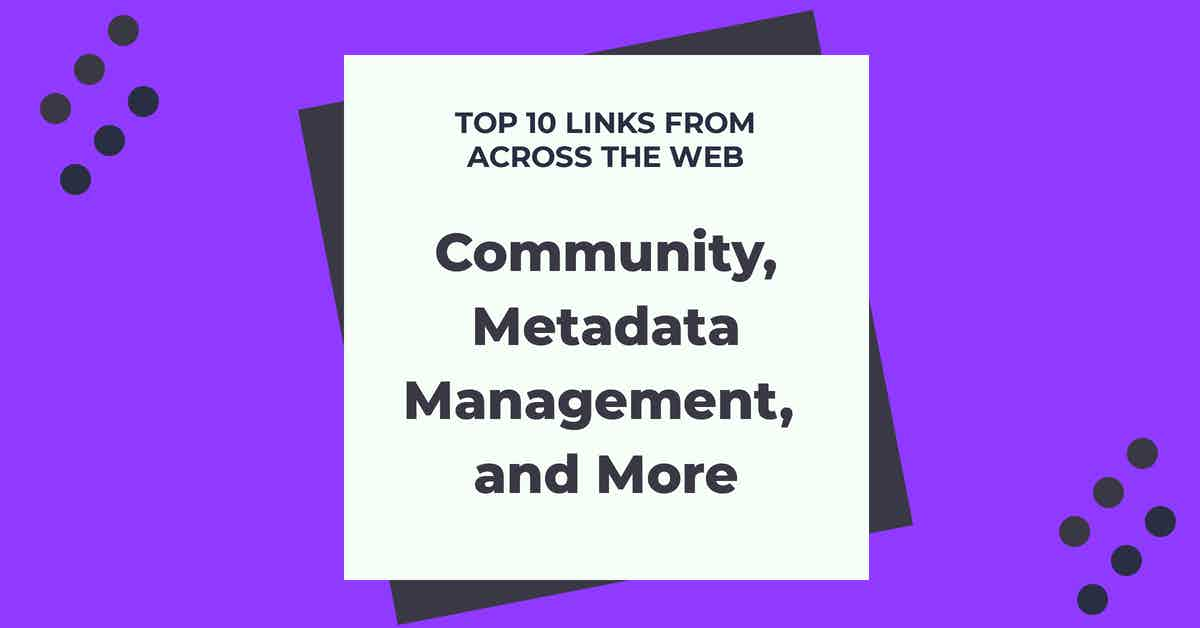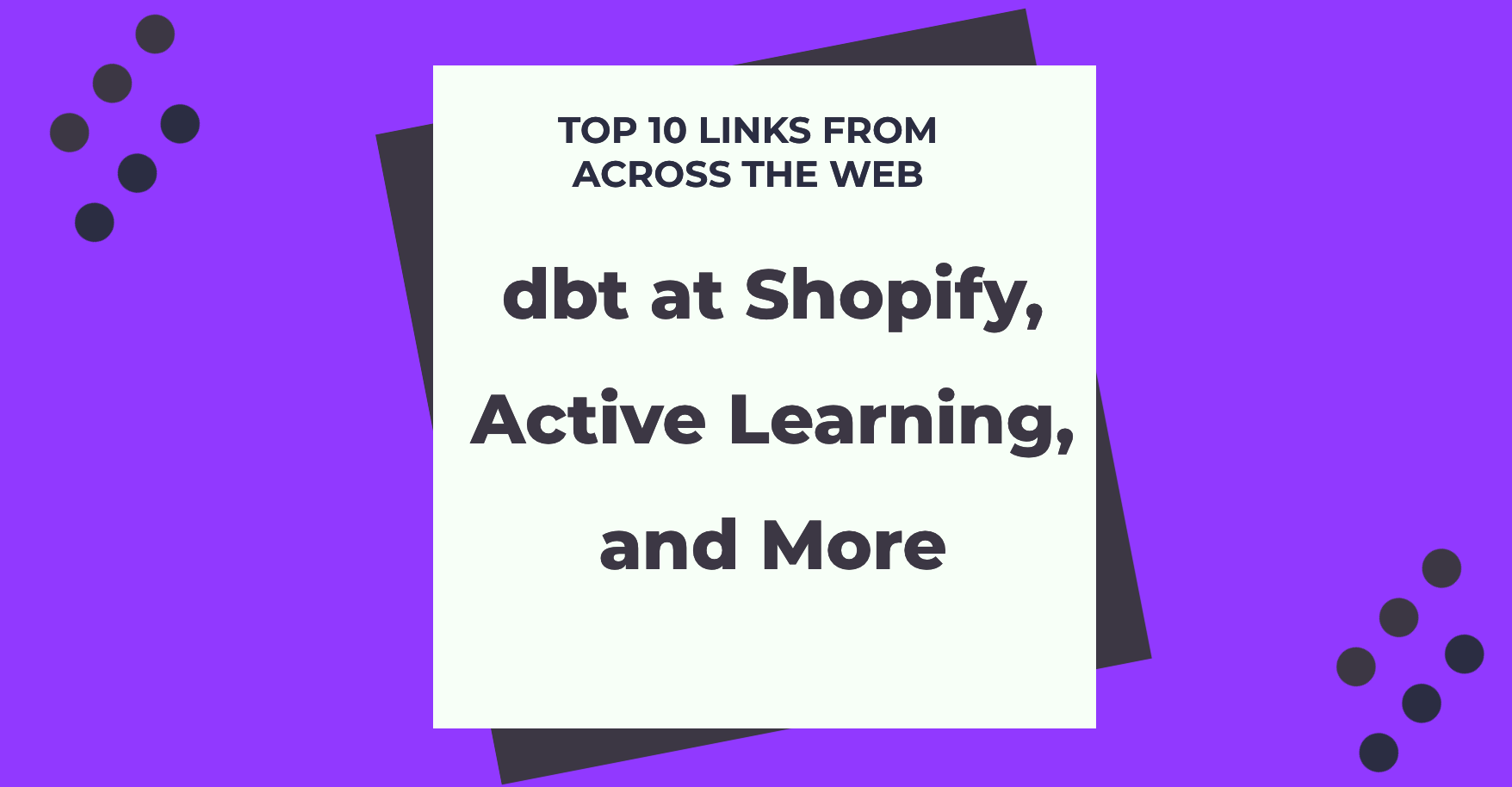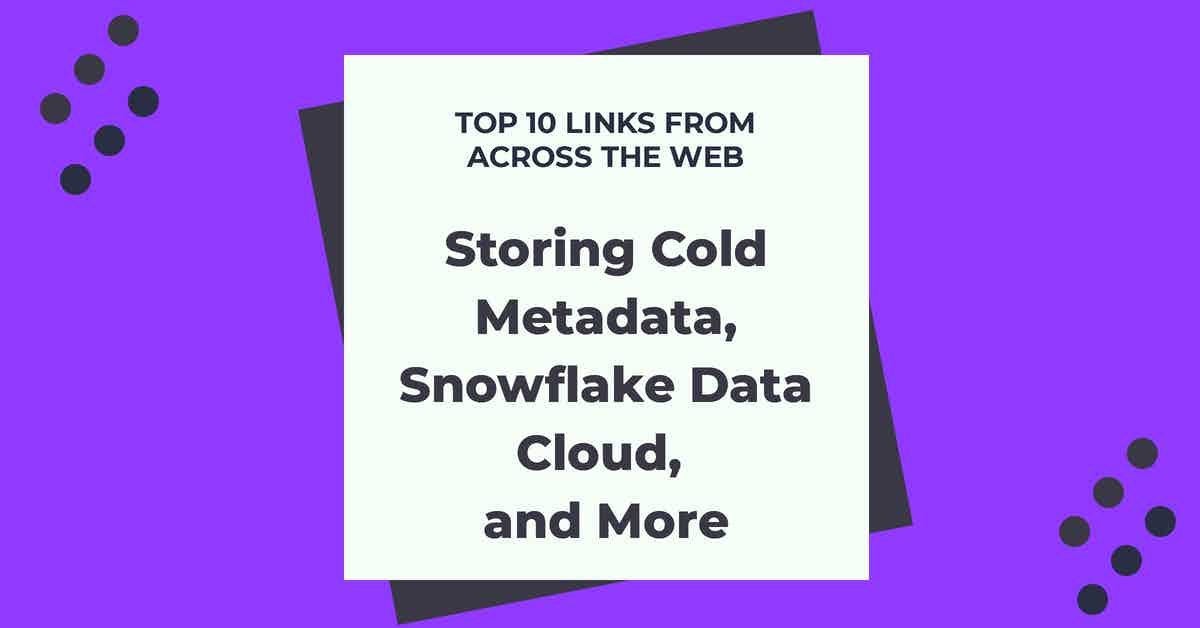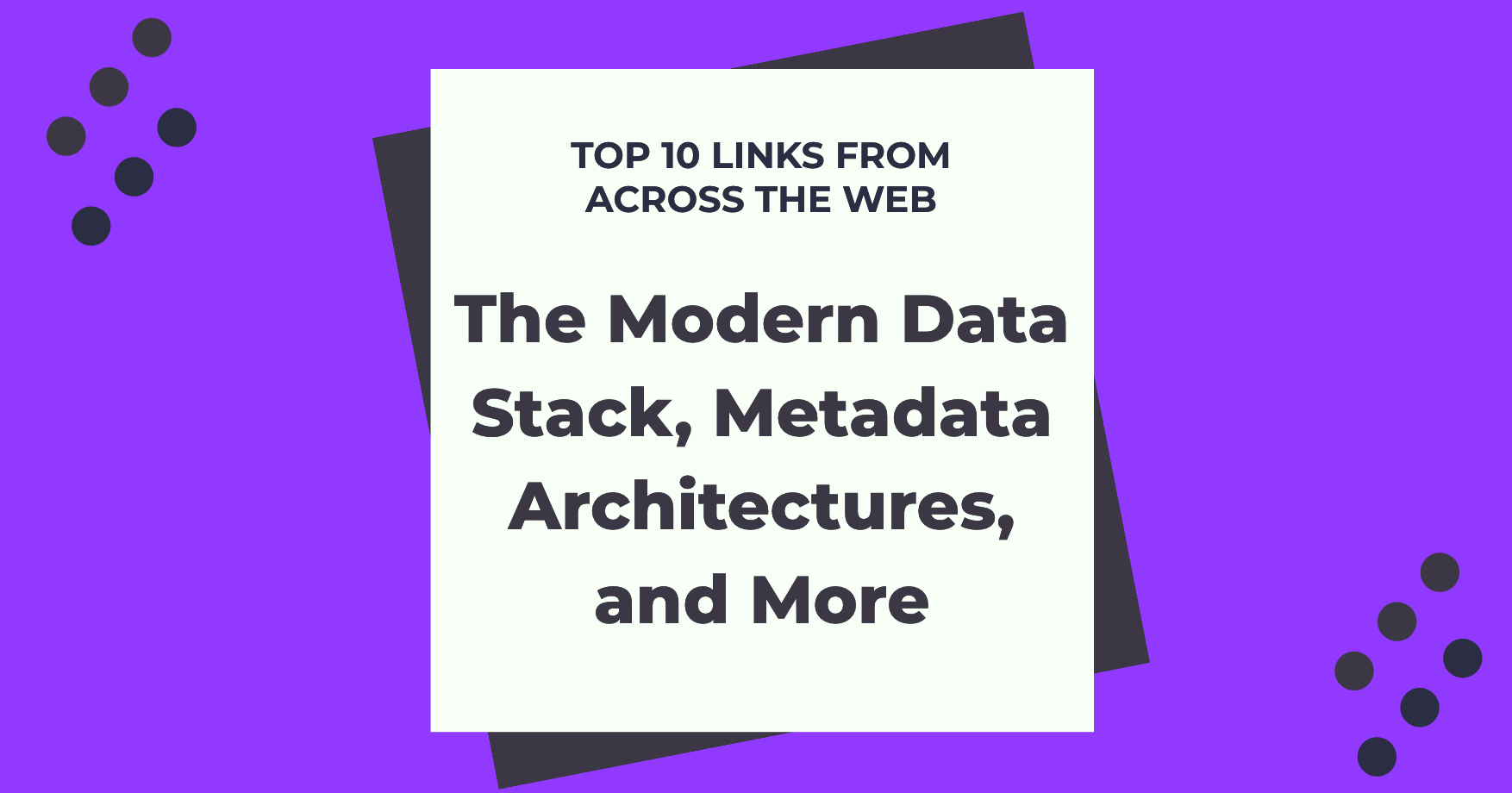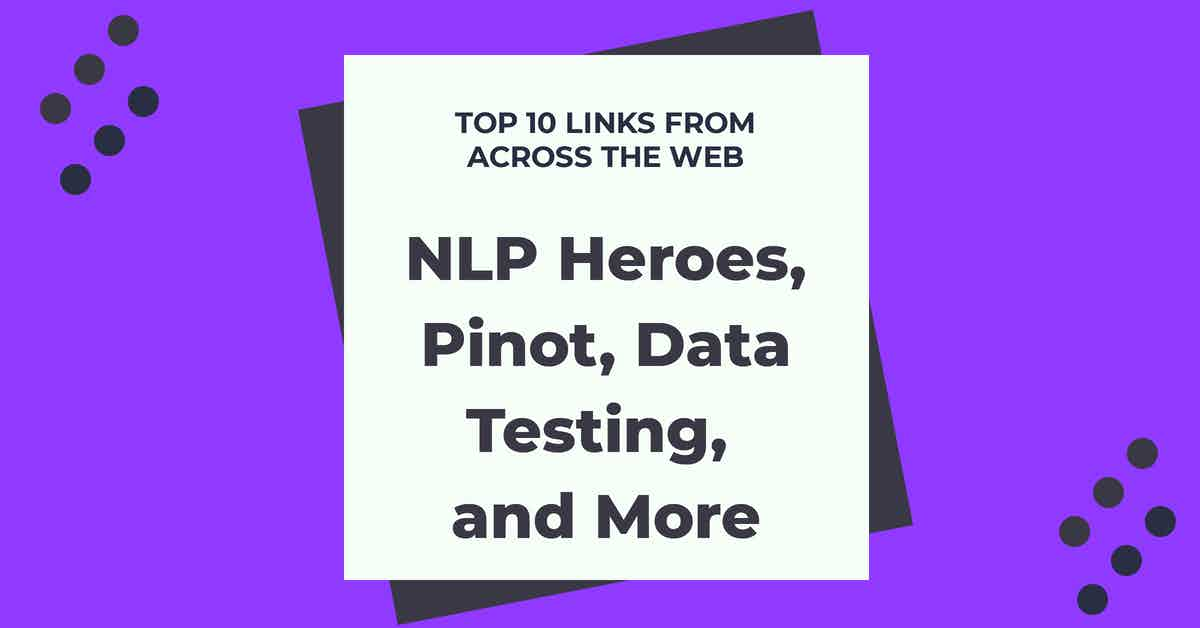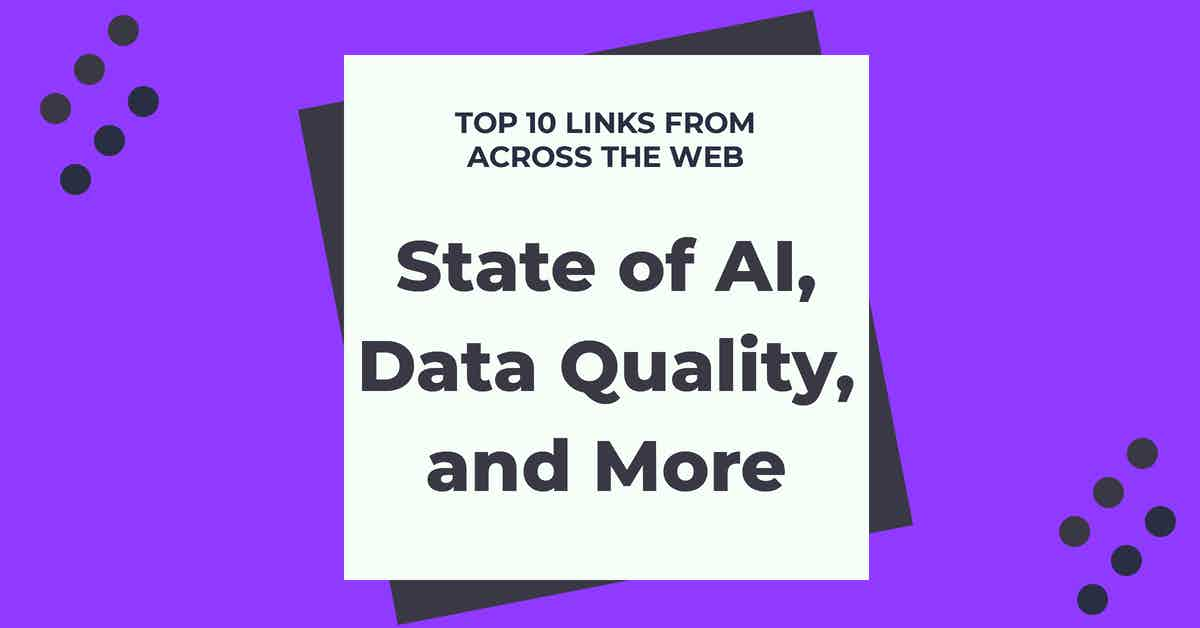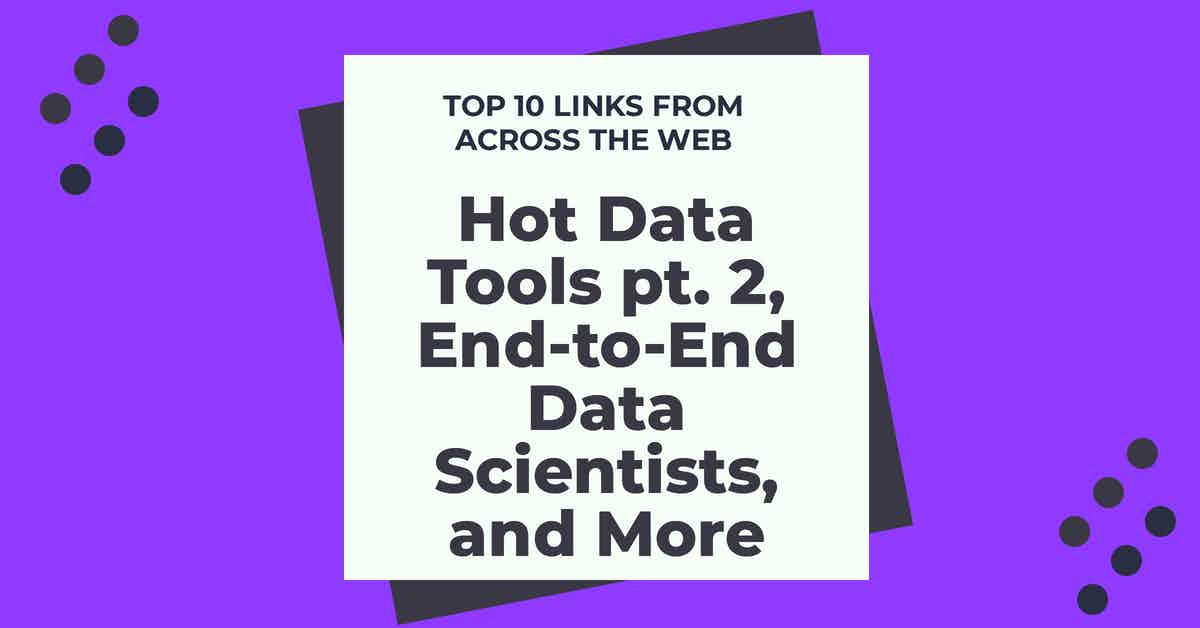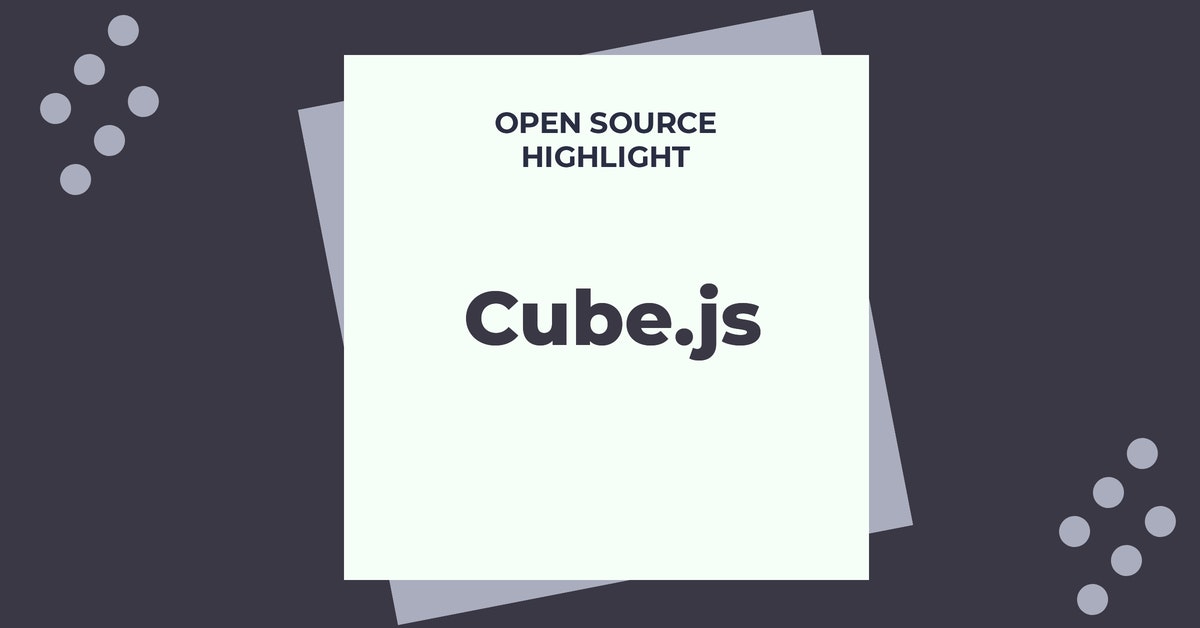Here's our March 2021 roundup of links from across the web that we selected for you:
Here's our February 2021 roundup of links from across the web that we picked for you:
1. dbt at Shopify (Data Engineering Podcast)
The Data Engineering Podcast recently featured a very interesting discussion about dbt at Shopify. Engineering manager Zeeshan Qureshi and senior data engineer Michelle Ark explained how dbt answered Shopify’s need for an SQL-based solution that its data scientists could use autonomously. They also mentioned some of the best practices they followed for staging, and cost considerations related to BigQuery. Last but not least, they touched on some extensions they are considering, such as implementing Great Expectations for data quality control.
Here's our January 2021 roundup of links from across the web that could be relevant to you:
1. Storing Cold Metadata with Alki (Dropbox)
Dropbox shared insights into Alki, the petabyte-scale metadata store it designed for infrequently accessed metadata (“cold data”). The post details how one-size-fits-all database Edgestore was reaching capacity limits, and why audit logs were a good candidate to be moved elsewhere than on costly SSDs. After considering off-the-shelf options, the team settled on building its own solution on top of AWS services: Alki; with DynamoDB as the hot store, and S3 as the cold store. Like HBase or Cassandra, Alki is based on log-structured merge-trees (LSM trees), but is better suited to handle hot-then-cold audit logs, as well as future use cases at Dropbox.
Here's our December 2020 roundup of links from across the web that could be relevant to you:
1. The Modern Data Stack (Fishtown Analytics)
This long-form post on the dbt blog is a must-read. Titled “The Modern Data Stack: Past, Present, and Future,” it answers the question that Tristan Handy has been asking himself for the past two years: “What happened to the massive innovation we saw from 2012-2016?” His carefully thought-out analysis covers the natural cycles of technological shifts, defines the phase we are in as a ‘deployment’ one, and points out high-impact opportunity areas for the next few years - which you might find particularly useful if you are considering launching a new product.
Here's our November 2020 roundup of good reads and podcast episodes that might be relevant for your career in data:
1. Heroes of NLP: Quoc Le (Deeplearning.ai)
Here's our October 2020 roundup of good reads and podcast episodes that might be relevant to you as a data professional:
1. Multiplayer Editing: a Pragmatic Approach (Hex)
Here's our September 2020 roundup of good reads and podcast episodes that might be relevant to you as a data professional:
1. What Data Tools Don't Do (Data Council)
Our founder Pete Soderling co-authored a follow-on piece to his previous post with Great Expectations' core contributor Abe Gong and Partner at Amplify Partners Sarah Catanzaro, for which they had interviewed the makers of some of the hottest data tools. The focus is still the same: rather than what their data tools can do, we hear about what they don't do, as a way to better understand how they fit together. From ApertureData to Xplenty, this new installment covers 21 new tools, and you can read it here.
Writing endless data transformations wasn't sustainable for an engineering team handling hundreds of inputs. Here's how Clover Health enabled their business users to help.
It's rare to find an ETL system that's completely static. As organizations change and grow they develop new business requirements. Because of this their data pipelines must change and adapt, ultimately becoming more robust and full-featured. Yet constant development can make already brittle ETL systems seem even more fragile.
Furthermore, systems with large numbers of different types of inputs bring special challenges - building, testing and managing an exploding number of data transformations can become a daunting project for the engineering team.
The Clover Health ETL system supports hundreds of inputs and more than 500 custom transformations in production as well as a large number of custom connections between their different ETL pipelines. When hearing about the magnitude of the system, one might rightfully wonder, "how does Clover guarantee and maintain data quality across so many different inputs and transforms?"
Exploring the development trajectory of Clover's system makes for a fascinating story; hearing about their data team's successes and pitfalls are illustrative lessons to other engineers as they seek to increase the robustness of their own ETL systems.
What if developers could ditch their No-SQL solutions and still get scalability from a more traditional relational datastore?
I've been noticing an interesting pattern recently where developers seem to be rejecting some of the newer, more en vogue data stores with limited functionality and use-cases (while promising easier scale) and returning to the comfortable tried-and-true paradigm of relational databases. It seems that we've hit a watershed point where developers finally believe they don't necessarily need to make a trade-off between database features on one hand and easy scalability on the other.
One such company enabling this return to the golden era of of RDBMS is Citus Data. Citus is blazing a trail in 'cloud-proofing' the gold standard of relational databases, PostgreSQL, through extensions that allow their customers to achieve much easier horizontal scalability than ever before.
.png?width=347&height=97&name=Data%20Council%20AI%20logo%20(1).png)
